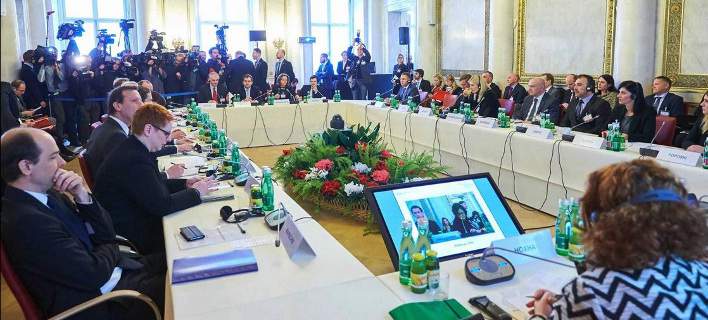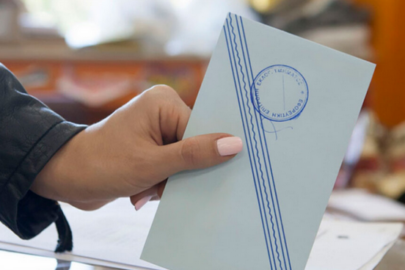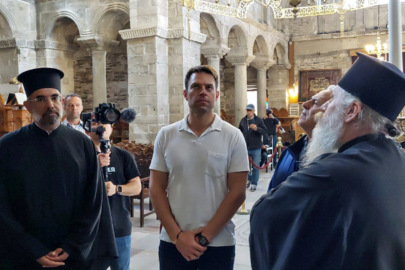The foreign and interior ministers of the nine countries along Western Balkan Route, excluding Greece, that participated in Vienna meeting on refugee issue called by Austria agreed to forge a “close alliance” so as to drastically reduce refugee flows,
Speaking during a joint press conference after the meeting concluded, to which Athens was not invited, Austria’s Interior Minister Johanna Mikl-Leitner talked about “stopping” migration flows.
She said the countries at the meeting had agreed to coordinate their actions on refugee policy and adopt a common stance from here on, including fully supporting FYROM and joining to exert pressure for a European solution at the EU interior ministers’ council on Thursday.
The countries at the meeting, apart from Austria, included EU members Bulgaria, Croatia and Slovenia and their western Balkan neighbours Albania, Bosnia, Kosovo, Montenegro, Serbia and the Former Yugoslav Republic of Macedonia (FYROM).
The meeting ended with a 19-point declaration stating that “the migration flow along the Western Balkans route needs to be substantially reduced,” and an agreement that all states at the meeting will refuse to accept people “without travel documents, with forged or falsified documents or migrants making wrongful statements about their nationality or identity”.
Mikl-Leitner said that the journey through the Balkans will only be made possible for those needing protection and that the decision about who falls into this category will be up to the individual countries.
Common rules for registering refugees were also agreed in the meeting.
Austria’s Foreign Minister Sebastian Kurz stressed that the countries at the Vienna meeting would prefer a common European solution but, since this was lacking, the countries were forced to find solutions on a national level.




































